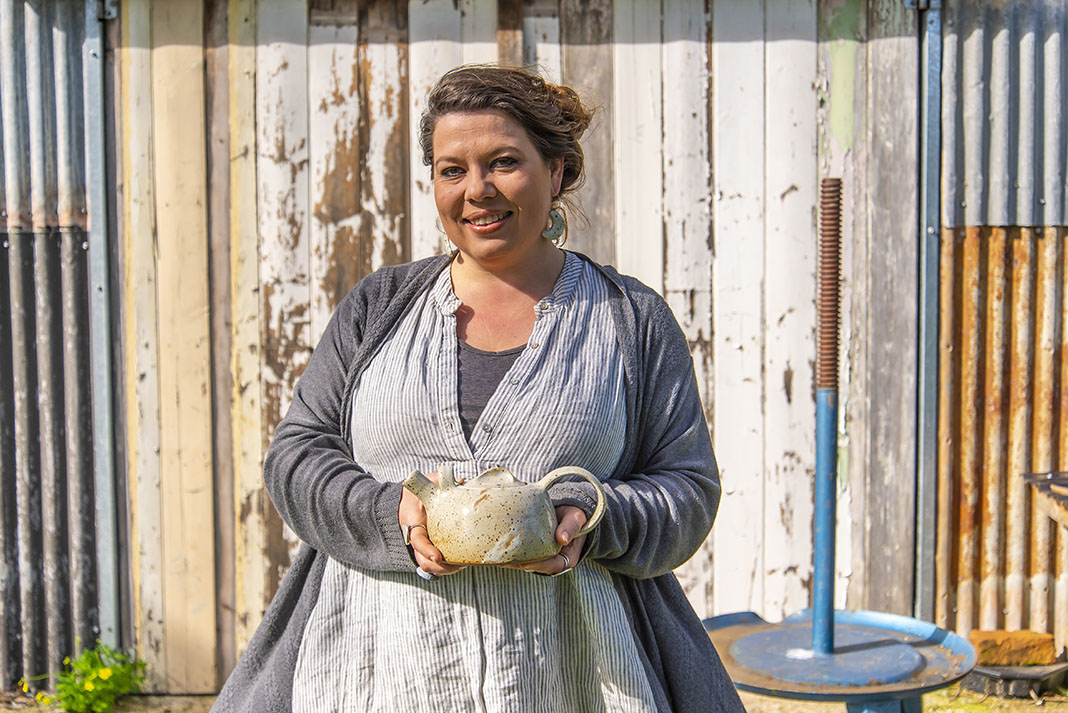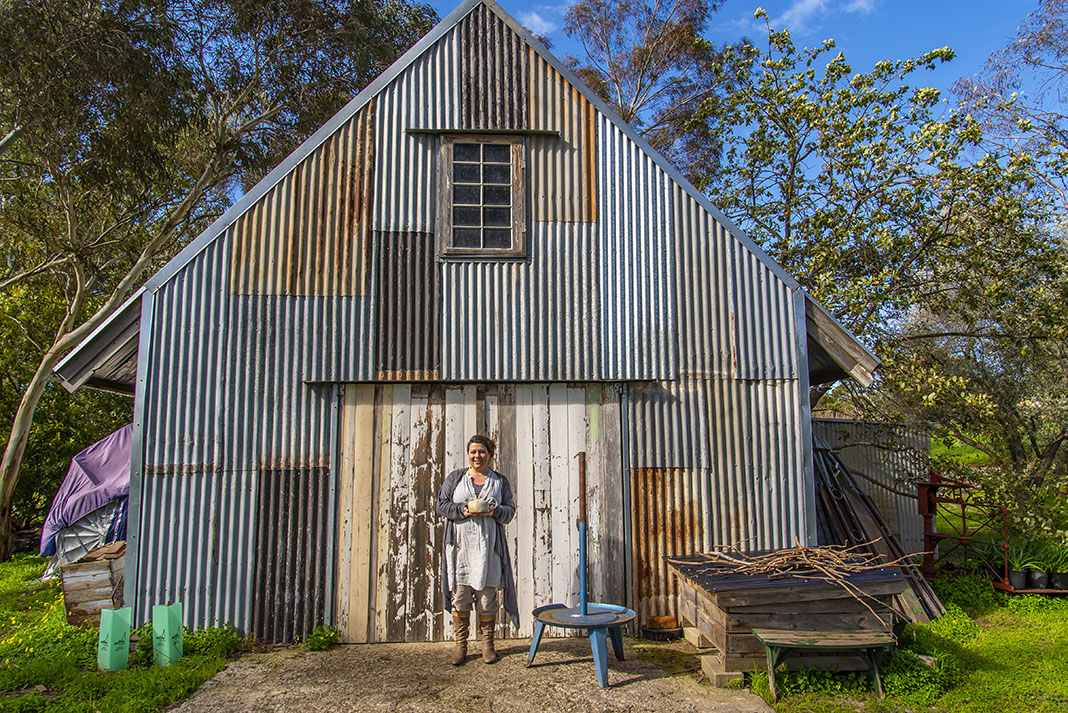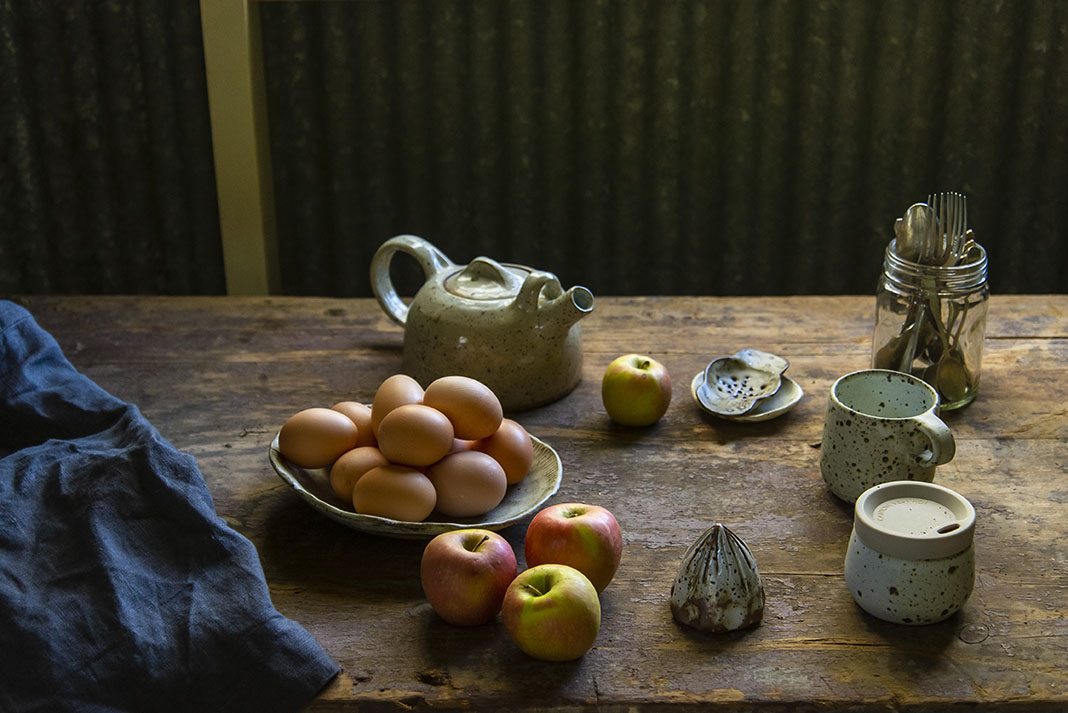
Ilona Glastonbury will not be quoted as living a sustainable lifestyle, nor does she believe that anyone in Australia is living 100% sustainably.
“It’s simply the fact that once you live in a house, drive a car or eat food that you didn’t grow it’s not sustainable,” Ilona explains.
That said, Ilona does have a desire to continue moving further down the path towards sustainability and aims to live by the 100 mile living rule, meaning to live off what is found within 100 miles of her home.
This is a lifestyle that was first inspired by the gift of a spoon which a friend carved from a branch of a tree that was planted from a seed 40 years ago.
“It was the moment I thought, why isn’t everything like this,” Ilona recalls.
A second inspiration for Ilona was the Helena Norberg Hodge’s film, ‘The Economics of Happiness’ which explores the idea of globalisation vs localisation.
This refers to the point that as we source things from further afield, we become less sustainable and our level of sustainability drops.
“We need to look at localisation as an antidote,” Ilona explains.
“We are so well placed in the Barossa to embrace the idea,” Ilona says. “Even just thinking in terms of food, there are few things we desperately need that we couldn’t get within 100 miles.”
One hundred miles actually covers most of South Australia, even some of Kangaroo Island if you use Tanunda as a mid-point.
When a community embraces this idea, localisation is embodied; carbon emissions drop and we enter into a cycle where accountability becomes more a part of the transaction.
Take the clothing that comes from China for example.
Ilona speaks of stories of their rivers running in the fashionable colours of the year and the poor treatment of children.
There’s nothing sustainable about that, but out of sight out of mind.
“If you bring it back to the Barossa, nobody is going to want our rivers running blue because it seems to be the colour of the season,” Ilona says.
“There’s that thing when everyone holds people accountable. It’s not alright to do those bad things, to have kids working 12 hours 7 days a week, to dump rubbish in rivers and kill our ecosystem, because nobody wants that in their own backyard.”
Ilona tries to incorporate as many practices as possible into her household routine.
“Some weeks we do really well, while others it seems our best intentions fall by the wayside,” she admits.
“Forgiveness is important; there is no point brow beating yourself if you are doing your best each and every day.”
Ilona also believes it important to recognise that our capacity to operate in more sustainable ways is affected by our financial situation.
Anyone can strive towards sustainable living but with greater wealth and privilege comes a greater capacity and responsibility to do everything possible to leave the world in better shape than we found it.
“I want to be able to look kids in the eye and say I did my best,” Ilona says.


As a way to combine her personal interests of design, environment and to encourage others towards more sustainable living, Ilona created ‘The 100 Mile Home,’ her own business selling numerous products made by local people from materials sourced within 100 miles of the Barossa.
Ilona has now also set up her own pottery business, ‘Ottie made’.
Both businesses are run through websites and are fabulous ways to access many brilliant local creations.
There are many ways we can all work towards sustainability.
Ilona suggests, have a compost, eat less meat, consume less dairy, ask for paper bags, go organic when possible, grow your own or buy locally grown flowers.
Support local small businesses, go bag free or bring your own, buy fresh from the farmer’s markets. If something is not in season, don’t buy it. Ditch plastic wrap.
Turn your thermostat down or put thermals and another jumper on and when you need something new, try the local op shops in case you can pick it up second hand.
The embodied energy in new items is so much greater and you are keeping something from heading to landfill.

Ilona also suggests that local businesses have reusable cutlery and packaging for sale.
“We like to take our metal bento boxes when we go for sushi,” Ilona says. “But sometimes we forget.”
Perhaps if businesses had reusable packaging to offer, it may be beneficial for both businesses and their customers.
Ilona says, “Most importantly, don’t worry about what anyone else is doing- this is about you and your impact.
“Be mindful that every single thing you do has an environmental impact and all you can do is your best.”